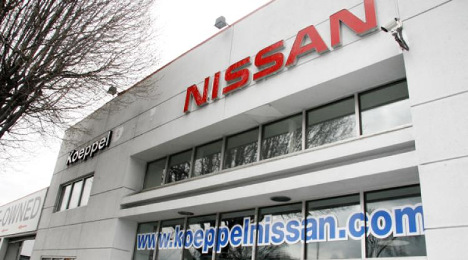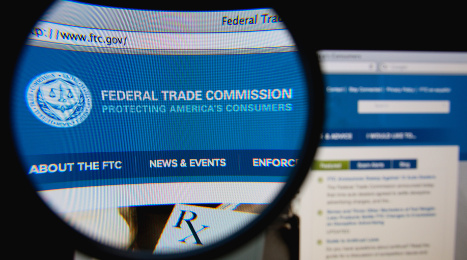The attorney general in the Empire State found reason to bring more allegations against franchised dealership accused of illegal selling products and services through the F&I department.
New York attorney general Eric Schneiderman this week announced a lawsuit against several Queens dealerships, including Koeppel Nissan, Koeppel Subaru, Koeppel Mazda, Koeppel Auto Group, and Koeppel Volkswagen.
The lawsuit, filed in New York Supreme Court, alleges that the Koeppel dealerships, all owned by the Koeppel family, unlawfully sold “after-sale” products and services, including credit repair and identity theft protection services to 1,426 consumers that sometimes exceeded a cost of $2,000 per consumer.
The attorney general also announced new settlements with dealerships in Nassau and Suffolk counties for selling credit repair and identity theft protection services to consumers.
According to the lawsuit, the Koeppel dealerships used deceptive sales tactics, including charging consumers for services while concealing such charges from the consumers, or by misrepresenting that the services were free. In fact, law enforcement indicated consumers did not receive the credit repair and identity theft protection services for which they were charged.
The court papers also alleged that the Koeppel dealerships collected more than $1 million from consumers between January 2013 and November 2014 for the credit repair and identity theft protection services alone using such deceptive tactics. The suits seek a court order prohibiting the Koeppel dealerships from engaging in these kinds of practices in the future and directing them to refund all illegally obtained overcharges to consumers.
Schneiderman’s office said the Koeppel dealerships arranged with an independent company, Credit Forget It, to sell Credit Forget It’s credit repair and identity theft protection services beginning no later than early 2013. Officials indicated it is a violation of state and federal law to charge upfront fees for services that promise to help consumers restore or improve their credit.
“Contracts that violate the credit repair laws are void,” Schneiderman’s office said.
The court papers further alleged that the Koeppel dealerships added on charges for other after-sale items like VIN etching and key replacement services, without clearly disclosing what they were charging for such services. Officials said the costs of these services were often bundled into the vehicle sales price and not separately itemized.
“As a result, unknown to the consumer, the price of the car stated on purchase and lease documents was inflated by the amount of these after-sale items,” Schneiderman’s office said.
In addition, the Koeppel complaint alleged that the dealerships sometimes negotiated purchase and lease terms with consumers in Spanish and then only provided contracts and documents in English. New York City law requires that when the terms of an installment agreement are negotiated in Spanish, the seller must provide documents translated into Spanish.
“When consumers shop for a car, they should not be misled by deceptive dealerships looking to make a quick buck off New Yorkers,” Schneiderman said.
“Unfortunately, some dealers pad their pockets with fees for products and services that unaware consumers don’t need, and don’t want,” he added.
Other settlements in NY
The attorney general also entered into a separate settlement with Westbury Jeep Chrysler Dodge and Fiat of Westbury — related dealerships in Westbury, N.Y., that also sold CFI credit repair and identity theft services.
That settlement requires the dealerships to stop selling illegal credit repair products and using deceptive and misleading sales tactics. It also requires the dealerships to itemize the cost of after-sale items in its sale and lease agreements.
Officials indicated Westbury will refund more than $100,000 to consumers, which represents the full profits it received from selling credit repair and identity protection. The store will also pay $5,000 in penalties and $5,000 in costs.
The attorney general also settled with Security Auto Sales, which operates Security Dodge in Amityville, N.Y., for similar practices.
In addition to injunctive relief, Security Dodge will refund more than $18,000 to consumers, which represents the full profits the dealership received from selling credit repair and identity protection. The store will also pay $5,000 in penalties.
“The office is continuing to investigate a number of other New York auto dealers that sold or sell after-sale services without the knowledge and consent of consumers,” officials said.
Past actions by Schneiderman’s office
Officials explained these lawsuits and settlements are part of the attorney general’s initiative to end the practice that automobile dealers call “jamming,” or charging consumers for hidden purchases.
Last year, Schneiderman announced a settlement with Credit Forget, the company that purported to provide the credit repair and identity theft protection services. The attorney general also settled with a trio of dealers — Paragon Honda, Paragon Acura, and White Plains Honda, located in Queens and Westchester Counties — that Schneiderman’s office determined had also fraudulently sold these same Credit Forget It contracts.
Paragon agreed to pay restitution potentially totaling nearly $14 million.
The Association of Finance & Insurance Professionals (AFIP) highlighted this week that Gulf States Financial Services Group’s entire dealer-support team completed the AFIP Certified F&I Professional program.
AFIP executive director David Robertson conducted a review and proctored the certification exam in the final round of testing at the firm’s Houston home office in December.
According to Robertson, “This group’s 100 percent first-time pass rate is indicative of the organization’s longstanding commitment to regulatory competence. A large number of the GSFS candidates moved up to Senior and Master Certification status.”
AFIP certification provides F&I professionals with a comprehensive working knowledge of the federal and state laws that govern in-dealership financial services, with an emphasis on best practices and ethical conduct.
“The Certified F&I Professional program’s primary objective is to place as many individuals with a working knowledge of state and federal regulations governing the vehicle purchase, funding, leasing, and owner protection processes as close to car-buying consumers as possible,” Robertson said.
The two-tier process calls for the certification of in-dealership financial services officers, backed by regulation-savvy dealership support personnel. In the last 25 years, AFIP has certified more than 50,000 in-store employees, field operatives of captive and institutional lenders and aftermarket product vendors, and independent general agents.
“The result has been a dramatic reduction in breaches of consumer trust,” Robertson said.
For the past 33 years, GSFSGroup has provided a contemporary and comprehensive mix of vehicle owner protection products and services, backed by committed customer service, basic and recurrent training, hands-on mentoring and oversight through its direct and general agent distribution channels.
The company’s objective is to enhance the vehicle ownership experiences of buyers in its core states of Texas, Oklahoma, Louisiana, Mississippi and Arkansas and throughout the U.S.
Commenting on the latest round of testing, GSFSGroup president Steve Amos said, “Nothing speaks more to GSFS’s commitment to our values and concern for the regulatory health of our organization than AFIP certification. We are very proud of our team’s test results and their commitment to excellence.
“GSFS will work to convince dealers to have their F&I personnel certified,” Amos went on to say. “With the CFPB presence today, it makes good sense to know your team has a clear understanding of the right thing to do.”
For more information about GSFSGroup, visit www.GSFSGroup.com. For more information about AFIP, visit www.afip.com.
The Federal Trade Commission recently rolled out a new resource catering to Hispanics in an effort to curtail what the regulator believes are potential pitfalls in the vehicle purchasing and financing process.
Officials highlighted their newest Spanish-language fotonovela — a small pamphlet similar to a comic-book format — is designed to explain how consumers can avoid vehicle-buying trouble.
“The fotonovela tells a story of what happens when a family buys a minivan with dealer financing, only to be told later by the dealer that the financing fell through and that, to keep the car, they have to accept a new, more expensive deal,” the FTC said about the material, titled, Manuel esquiva un lío al comprar un carro.
“Manuel esquiva un lío al comprar un carro is part of the FTC’s initiative to raise awareness about scams targeting the Latino community,” the regulator went on to say.
The material can be downloaded here.
There could be new curves for dealers to navigate this year on the regulatory road, a path that can sometimes wind and change course with little notice.
Some of those twists in 2016, says Randy Henrick of Dealertrack Technologies, may involve ramped up regulation of dealership aftermarket products, continued focus on deceptive advertising, and increased pressure from state attorneys general — a group dealers are more likely to hear from than federal agencies.
During a webinar this week, Henrick outlined regulatory enforcement by various agencies, looking back on their activities from the past year while also forecasting what may be on their respective radars this year.
About 20 minutes into the webinar — after recapping the 2015 actions from a couple of agencies and giving dealers some compliance tips — Henrick turned to what he called the “good news portion of our program.”
Believe it or not, that news was about the Consumer Financial Protection Bureau.
“We are winning the war on indirect auto dealer disparate impact credit discrimination, and rate participation is not going to go away,” Henrick said. “I’ve been saying that for two years, and it’s true.”
The CFPB, he said, had a rough 2015. And the start to 2016 wasn’t much better.
In fact, on the day of the webinar (Jan. 20), the U.S. House of Representatives reported there were CFPB documents indicating that number of people in protected classes were overestimated in a 2014 settlement the bureau made with Ally Financial, Henrick said.
He also referenced H.R. 1737 — the Reforming CFPB Indirect Auto Financing Guidance Act — that was passed by the House of Representatives in November.
“The House of Representatives voted on a bipartisan basis, 332-96 — when have they ever voted in that number before? — to repeal that 2013 auto finance guidance that claimed dealer rate participation was credit discrimination,” he said.
“I am told they have approximately 60 votes in the Senate, and that bill is going to be introduced this coming week,” Henrick said, referring to the final week of January. “It’ll get passed in the Senate; it’ll go to President Obama’s desk. He’ll probably veto it, but it sends a message to the CFPB.”
He also pointed out that the CFPB “backed down from the 2013 guidance” in both of its consent decrees from 2015. The guidance, Henrick explained, had said flat fees were the only way to halt credit discrimination.
“Both of those consent decrees allowed for dealer rate participation,” he said. “Now, they’ve limited it to 125 basis points on contracts up to 60 months, and 100 basis points on longer contracts. Now the door is open; it doesn’t have to be just flat.”
The CFPB has also “backed down” on not allowing for a legitimate business justification for lowering a rate, Henrick said. This lets dealers go below a finance company’s buy rate for competitive reasons.
However, bear this in mind: as of this past summer, the CFPB gained regulatory oversight of 34 finance companies, where previously their oversight was only banks with assets of more than $10 billion, Henrick said.
“So, they’re going to go after these finance companies. These finance companies are going to play along like the banks did, even though they know this is all nonsense,” he said. “And you’re going to be hearing from these finance companies wanting audits, wanting information.”
Additionally, the CFPB said in 2015 that it planned on issuing a rule that would ban waivers of class actions in the arbitration clauses of vehicle installment contracts.
“They are going to issue rules in early 2016 under the Administrative Procedure Act that comments on the rules. The final rule will get put out some time in 2017,” Henrick said.
Though he acknowledges this would be “down the turnpike a little,” Henrick said this move is on the way and would be a “major blow” to not have waivers of class action in arbitration clauses.
What’s next for CFPB?
Well, given the profit dealers can make from aftermarket products, Henrick said, that is likely the bureau’s next target.
The CFPB will likely “try to impute bad contact by dealers in selling aftermarket products (from) lenders and try the disparate impact theory that way,” he said. “Try and get you on an aftermarket product
“They’ve already done some of this in other consumer products,” Henrick said. “Here’s the ones they particularly don’t like: credit repair, identity protection, payment packing of credit insurance and service contracts. These are the ones they’ve most targeted.”
Additional predictions from Henrick were:
- Look for doc fee litigation to increase this year in states without established doc fee limits.
- The CFPB is likely to up its game on reporting to credit bureaus and debt collection. Even though many dealers may not work in those areas, they are likely to be “hot areas” for the CFPB and FTC, he said.
- FTC will continue to go after deceptive advertising.
- Watch out for hackers and similar criminal entities that are likely to target dealers to get consumer data. “Data security has never been a bigger problem … this would be a good time to look at your data security program.”
- CFPB will likely tone down its efforts to remedy disparate impact. However, it will turn to aftermarket products and unfair/deceptive sales.
- State attorneys will target advertising shortfalls on both a federal and state level, with the dollar figures they pursue only increasing.
Dealertrack Technologies said on Wednesday that the 2016 edition of the Dealertrack Compliance Guide is now available in print and online! For 11 years, Dealertrack has been the industry’s single best source of compliance guidance written for dealers and is free.
The company highlighted the seven attributes that are new to the 2016 version, including:
— New federal laws and regulations in effect for 2016
— A focus on new federal laws and regulations related to dealer advertising
— Advice regarding actions by agencies such as the Consumer Financial Protection Bureau, Federal Trade Commission, legislatures and courts
— Recommended practices for data safeguards and identity theft protection
— How to implement a compliance management system at your dealership
— New links to valuable online F&I compliance resources
— Immediate access to the new online version of the guide
“It is the only guide available in the market that combines current regulatory facts with trends and practical guidance that can be applied with little effort,” Dealertrack said.
“Dealers can use this guide on daily basis to protect their dealership from audits, fines and consumer fraud,” the company continued. “It also serves as a great reference for lenders, aftermarket providers, agents and more.”
The guide can be acquired online here.
National Credit Center (NCC), a provider of comprehensive solutions and credit data to thousands of dealers to improve the efficiencies surrounding the credit approval process, announced this week it has acquired Las Vegas-based technology firm AimLogic.
Developer of the predictive technology suite LogicTargeting, AimLogic provides dealers with specific information enabling them to connect with potential customers — in their geographic area — that are most likely to purchase a vehicle within the next four to six months.
Jevin Sackett, chief executive officer of NCC parent company Sackett National Holdings (SNH), said the NCC acquisition of AimLogic will further solidify the company's position.
“NCC's acquisition of AimLogic, and the disruptive technology the company has developed, marks a significant step forward in NCC's evolution as an automotive industry leader nationwide," Sackett said.
“The innovative — and proprietary — suite of technological solutions AimLogic will provide to our auto dealership clients is unmatched, and will prove to be a vital tool for dealers seeking to target their sales efforts to the most likely potential customers in their region,” Sackett continued.
AimLogic's proprietary algorithm can mine a multitude of data sources, including social media profiles, online buying habits, and a wide range of public market and search activity. Utilizing this information, the company’s LogicTargeting technology can create “predictive analytics,” resulting in profiles of potential auto clients with the highest propensity to purchase a new vehicle.
“AimLogic’s proprietary technology was specifically designed to meet the needs of automotive dealers looking to zero in their sales efforts on potential customers that are most likely to buy a new vehicle in the near future,” said Scott Biondo, AimLogic’s vice president of product marketing.
“While American auto dealers experienced strong sales last year, the auto industry remains fiercely competitive, and dealers are all too aware that in 2016, traditional sales and marketing methods are both too time-consuming, as well as inefficient,” Biondo continued.
“By contrast, AimLogic utilizes time-saving, state-of-the-art predictive technology designed to both target the most likely potential customers, and drive them towards visiting both dealers' websites as well as showrooms,” he went on to say.
Autoscribe Corp. general counsel and chief compliance officer Laurie Nelson recently was named to the Jacksonville Business Journal’s inaugural class of ultimate attorneys.
With more than 250 nominees, this new award recognizes and celebrates the 25 best legal professionals in the Jacksonville, Fla. area.
Members of small, medium, and large-sized firms in addition to corporate counsels were eligible to participate. Autoscribe has been in business for more than two decades, offering a full suite of tools through PaymentVision and Lyons Commercial Data to help their customers grow their business, simplify payment processing, mitigate risk and ensure compliance.
“I’m very excited to be included in the ultimate attorneys list,” Nelson said. “An incredible amount of time and energy is spent to ensure that compliance and legal matters are handled in a timely, professional manner. This makes the list a true honor to be a part of.”
Founded in 1985, the Jacksonville Business Journal has more than 175,000 active readers across its print and online mediums.
“The Jacksonville Business Journal has introduced a new award this year, one that recognizes the First Coast’s top lawyers,” said Timothy Gibbons, editor in chief for the jacksonville business journal.
“Those selected for this award have elevated the legal profession and have helped shape Jacksonville’s business community,” Gibbons continued. These men and women were selected, with the help of members of the local legal community, from a pool of attorneys suggested by their peers.”
If you’ve been in this business for any length of time, you’re no doubt familiar with the spot delivery. That’s when a dealer signs a contract with a customer, allowing them to take possession of their new car before they’ve even received bank approval. It’s a practice about as old as the industry itself — and one that’s also fraught with risk.
Back in my retail days, I worked with numerous general managers who didn’t think twice about spot deliveries. They’d espouse the notion that if you weren’t bringing enough cars back, you just weren’t spotting aggressively enough! Their motto seemed to be: “If the customer can fog a mirror, we’ll spot them.”
The fact that spot deliveries still occur today seems a bit of a mystery. With the advent of technology and the development of channels like Dealertrack, RouteOne and CUDL, you’d think the practice would have gone the way of the DeLorean. This is hardly the case.
Many dealers will stop at nothing to put a deal together, including pushing spot deliveries. This is a frequently used tactic to remove a buyer from the market until the dealer has had enough time to hash out the particulars with the lender. This effectively keeps the buyer from going elsewhere while waiting for approval and limits the risk that they’ll be scooped up by the competition.
Often times, dealers bank on catching lenders asleep at the wheel. But it’s when third-party financing can’t be obtained at the quoted rates that things start to get messy. That’s when the customer is called back into the dealership and presented the cold hard facts by the F&I manager: The deal was not approved on the original terms offered. In order to keep the car, they’ll have to resign on higher payments or different terms.
Although many states have no laws in place preventing the practice of spot delivery, there are several conditions that apply. For example, it’s considered a deceptive practice to have a customer sign a contract on terms you know they may not be approved for. This is commonly known as a “yo-yo” deal, and can lead your dealership into a world of trouble — not the least of which could result in a class action lawsuit.
When spot deliveries go bad
Spot deliveries gone bad often result in one of two scenarios: recontracting and unwinding. Unwinding is a more straightforward action, resulting in the complete cancellation of terms and the return of the vehicle to the dealership.
Recontracting is the most common result of failed spot deliveries. That’s when the original contract is rescinded and a new contract is written up, this time for terms more likely to result in a third-party approval. Some states, like California, require the use of specific forms when recontracting customers. These forms also typically require dealers to provide full disclosure for the reasons why.
Recontracting is a sticky practice. Many dealers aren’t aware that back-dating contracts isn’t legal. All recontracted deals must show the new date of the contract. If not, this may lead to the inaccurate disclosure of a stated APR — a major no-no that can cause your dealership to be hit with a Truth in Lending Act violation.
Stips and liabilities
Another common mistake dealers make is letting customers slip on stip collections, attempting to collect stips only after the customer has taken possession of the vehicle. This practice can open you up to significant risk — like the customer being unable to offer proof of income, or the provided proof of income not matching what was entered into the application.
In this case, you as the dealer will have no choice but to send the deal to another bank. This provides customers with anywhere from two weeks to 45 days to shop the loan without adversely impacting their credit. If credit is pulled outside of that allowance, it may damage the customer’s credit file. This can leave your dealership liable. The solution? Never let the customer leave without validating their income and without all stips in hand.
Insurance and liability
Yet another danger inherent in the spot delivery is the question of insurance in the event of an accident. If a customer drives a new car off the lot and gets into an accident — wrapping the vehicle around a telephone pole and injuring others in the process — your dealership will be responsible for paying for the damages. In this scenario, an insurance provider is not obligated to pay the claim. It’s not until the transaction is fully funded by the bank that insurance kicks in.
State requirements vary
Some states require dealers to obtain bank approval within a specific time frame. Recently, New Jersey revised spot delivery time frames to four days. If bank approval can’t be obtained within that time, the customer has to return the vehicle. Once outside that four-day allowance, customers can demand the originally contracted terms – leaving the dealership responsible for providing in-house financing. In-house financing, also known as full recourse, can open up a can of worms with respect to various regulations.
Other states have different rules about spot delivery. In Wisconsin, dealers there are required to provide financing if they spot deliver a vehicle and can’t get the customer approved through a third-party lender. Because state laws differ, ensure you are up to speed on where your state stands with respect to spot delivery.
Deferred down payments and promissory notes
Often, dealers offer to hold checks or promissory notes to defer the customer’s down payment when doing a spot delivery. While this may not be considered illegal by FTC standards (as long as no interest is charged to the customer and you’ve been fully transparent), it could raise serious issues with your bank provider.
If the customer fails to make payment to the lender and the lender discovers your dealership accepted a deferred down payment or promissory note in lieu of actual money down, your dealership could be on the hook for the full value of the car. Naturally, much of this has to do with your established relationship with the lender in question – but it’s a risk better not taken. As a point of caution, always read your dealer agreement and closely review your retail installment sales contracts.
No such thing as a free ride
Spot deliveries offer numerous conveniences for both customers and dealerships. Customers can drive their new vehicle off the lot much sooner, and dealerships enjoy selling more cars. But spot deliveries also come wrapped in risks that must be considered. Spot decisions can wreak havoc in the wrong hands. As a dealer, it’s imperative that you examine the potential pitfalls of spot delivery and determine if the risks to you outweigh the benefits.
Rebecca Chernek of Chernek Consulting provides customized in-dealership training for franchised, independent and high-line luxury brand automotive dealers. Interactive virtual training programs in conjunction with role play, including a recently added course on compliance, are available at www.chernekconsultingvirtualpro.com.
New Jersey dealers now have another option for research when trying to stay compliant with growing F&I laws.
The Reynolds and Reynolds Company announced the release of the Reynolds LAW New Jersey F&I Library.
The Library is a catalog of standardized, legally reviewed finance and insurance (F&I) documents for franchised new car and truck retailers throughout New Jersey.
And the documents in the LAW New Jersey F&I Library are available in both paper-based and electronic formats.
"Throughout 2016, we expect automobile retailers will continue to be challenged to balance increased demands from legislators and regulators with the increased demands from consumers for a more rewarding experience with the dealership," said Jerry Kirwan, senior vice president and general manager of Reynolds Document Services. "Part of Reynolds' response is to develop tools that help dealers face these pressures head on as well as help them prepare for the coming age of electronic transactions. The LAW New Jersey F&I Library is one such example of these tools."
Reynolds explained the documents in the library are regularly reviewed for compliance with the latest automotive regulations.
The team at Reynolds leads the review, in conjunction with Reynolds’ outside legal partners.
The standardized vehicle deal documents have the potential to help dealers achieve a more consistent F&I process, and moreover, the documents are written in a consumer-friendly language to help improve transparency.
Hudson Cook LLP — provider of legal compliance services for the financial services industry — announced this week it has added a new partner.
The firm has promoted Allen Denson to partner in its Washington, D.C. office.
Allen has been an associate with the firm since January 2014.
In particular, the new partner represents financial institutions and other creditors in investigations and litigation with federal financial regulators, specifically the Consumer Financial Protection Bureau and the Federal Trade Commission.
Prior to his time with Hudson Cook, Allen serves as a senior attorney in the Enforcement & Compliance Division of the Office of the Comptroller of the Currency from 2009 to 2014.
“Allen is a tremendous asset to the firm and our clients, and we are thrilled to have him as our partner. Not only is he a talented litigator, he is a thoughtful and generous colleague who makes significant contributions to both the bottom line and the firm's collaborative culture,” said Michael Benoit, chairman at Hudson Cook.












